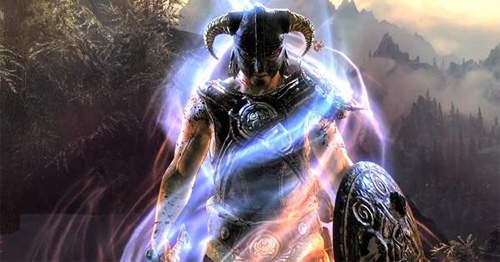I’ve got a problem. It’s been well documented on this site and in our podcasts, but I should reiterate: I’m an RPG completionist. I’m OCD in a way that is truly tough to convey to people who can’t open up my head and take a peek inside. From the largest weapon to the smallest task, I’m trying to do everything, see every nook and cranny of even the hugest open RPG world until its boundaries feel like shackles and I’ve got nowhere left to go.
Such is the case with Skyrim. You see, I’ve put about 50 hours into the game so far, and I’m sitting pretty at about Level 43. And I’ve only recently just gone to High Hrothgar for the first time. If you’ve been playing the game, you know that most people go do this just south of Level 10, but not me. I’m an overpowered badass that’s been running all over the place doing the bidding of every peasant and lowlife that needed ferrying or dungeoneering.
It’s really hard to pinpoint the root cause of this obsession, and even harder to curtail it once it sets in. Something about the way my personality works just causes me to get lost in side quests.
I thought I’d take this opportunity to ask how you guys handle side quests versus main quests. While side quests are really meant to help you level between the main or perhaps give you something to do once you’ve beaten the game, I tend to use them to make the main ludicrously easy for myself. How do you guys approach them? Go!





